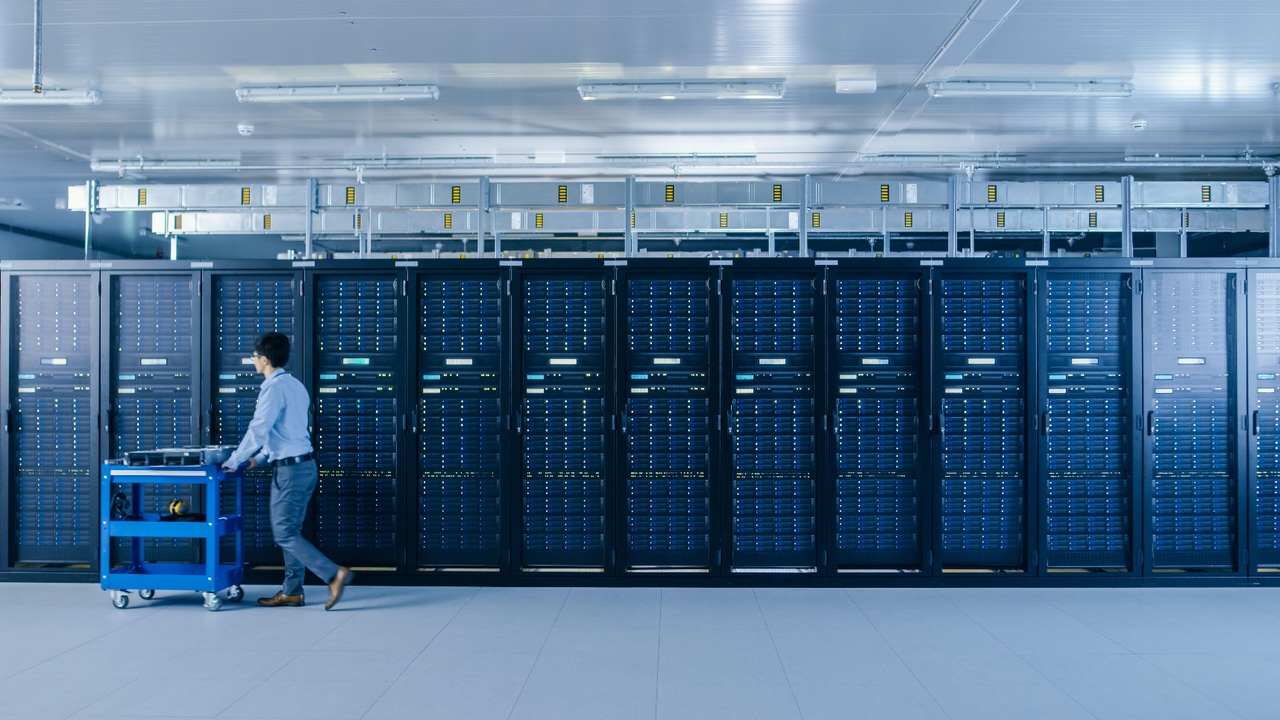Data Centers vs. Colocation: Key Differences and Use CasesData Centers vs. Colocation: Key Differences and Use Cases
Colocation is often compared with owning or leasing a data center, but it's actually a service within them. Here's how they differ and when to choose each.

When choosing the right infrastructure for your business, the terms "data center" and "colocation" are often used interchangeably – but they're not quite the same.
While colocation is a type of data center service, this approach offers some unique advantages that set it apart from owning or leasing a facility outright. Let's break down the distinctions to help you decide which model fits your needs.
Understanding the Role of Colocation Within Data Centers
A data center is a facility that houses IT infrastructure – such as servers and networking equipment. The purpose of data centers is to provide a secure, reliable place to deploy IT equipment. Some data centers also offer advantages like access to renewable energy, which can help make IT workloads more sustainable.
There are many types of data centers, and many use cases for them. Some data centers are owned and used by a single company. Others are owned by public cloud service providers (CSPs) and host workloads for the customers of those CSPs.
Colocation, meanwhile, is a type of service that allows an organization to deploy IT infrastructure inside a data center that is owned and managed by another company.
In other words, when you use colocation, you don't have to build or operate your own data center. Instead, you essentially rent space inside someone else's data center, and you use that space to deploy servers and other IT equipment.
Colocation vs. Cloud and BMaaS
To dispel any possible confusion, we should note that colocation is similar to, but distinct from, other types of services that exist in the IT industry. In particular:
Colocation is distinct from public cloud computing because in a public cloud, you don't own the servers that you use. Instead, you run workloads on infrastructure that is owned by a CSP, and that lives inside a data center owned by the CSP. In contrast, with colocation, you own the hardware, even though it lives inside someone else's data center.
Colocation is distinct from Bare-Metal-as-a-Service (BMaaS) because BMaaS involves renting dedicated servers that are managed by a third party. With BMaaS, you get full control over the servers (which makes BMaaS different from public cloud, where you typically don't have full control over the underlying infrastructure), but you don't own the servers, as you would if you used a conventional colocation service.
How Does Colocation Work?
The process for using colocation typically boils down to the following:
Find a colocation provider: First, you need to find a data center company that offers colocation services, meaning it allows third parties to rent space inside its facilities. Several global data center providers offer colocation, and there may also be local data center companies with just one or two facilities that allow colocation.
Deploy IT equipment: After finding a provider, you deploy your servers and other equipment inside its facility. Typically, this process requires sending staff to the site to stand up the equipment, although some colocation providers offer services to handle this work on behalf of customers.
Manage colocated hardware: Managing colocated hardware can be challenging because you typically wouldn't have your own staff deployed full-time inside the colocation facility. But you can send them there on a periodic basis or hire a third-party provider to manage your colocated equipment for you.
The Meaning of Colocation vs. Data Centers
Usually, when people talk in terms of "colocation versus data centers," they're referring to the difference between using colocation as a way of deploying IT equipment inside a data center and other methods (like building your own private data center).
Otherwise, trying to compare colocation to data centers doesn't make much sense because colocation is based on data centers. You can't colocate workloads without using a data center.
Choosing Between Colocation and Data Centers
As for whether your business will be best served by colocation or another data center strategy, the answer tends to boil down to the following factors:
How much data center space you need: If you don't have enough IT infrastructure to fill an entire data center, colocation may be attractive because you can rent only the space you need.
Where you need to deploy IT equipment: Colocation can be appealing if you want to maintain points of presence in diverse regions because it allows you to deploy equipment to them without having to build a data center in each one.
Workload management requirements: Workloads that require complex maintenance or management tend to be poorer candidates for colocation, due to the challenge of supporting the workloads when you don't have staff permanently on site in the colocation facility.
Security requirements: In certain respects, colocated workloads may be less secure – or at least, you don't have as much control over how they're secured because you rely on a third party to guarantee the physical security of the data center that hosts them. If you need to meet strict security or compliance mandates, a private data center may be better.
In short: Whether you choose colocation or use your own data center, you get the benefits that come with deploying workloads inside a data center – like higher levels of reliability than you'd likely achieve if you were to stick servers in a utility closet or basement.
But the colocation model offers more flexibility than standard data centers, with the caveat that colocated workloads can be more challenging to manage and secure.
About the Author
You May Also Like









